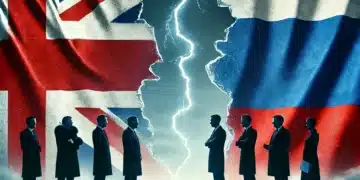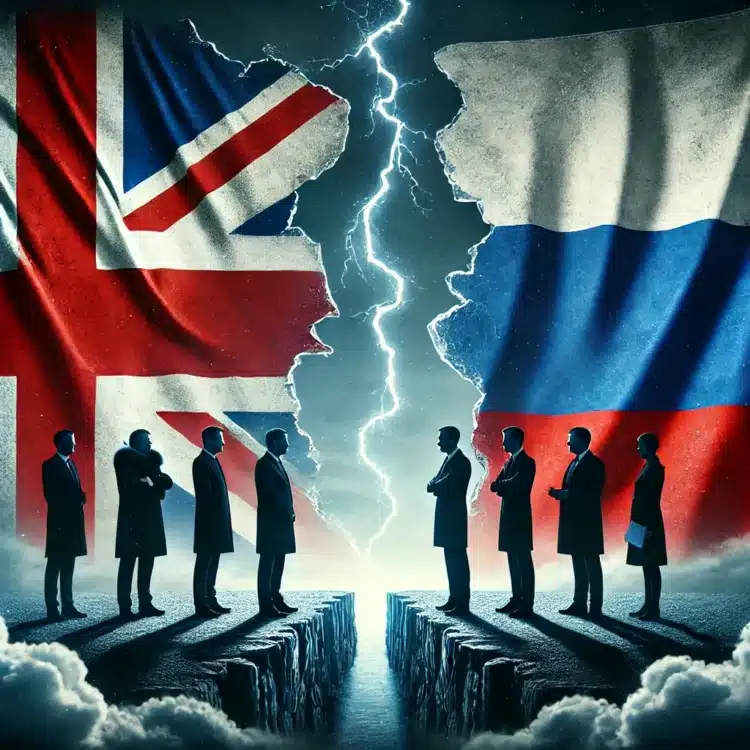Diplomatic relations between the United Kingdom and Russia have been strained for years, but recent developments have further deepened the rift. The expulsion of diplomats by both nations marks a significant escalation, highlighting the broader tensions that continue to shape their bilateral relations.
Here, we’re diving into the details of the latest diplomatic expulsions, the historical context behind the tensions, and the broader implications for international relations.
Overview of Recent Diplomatic Expulsions Between Russia and the UK
In recent months, the United Kingdom and Russia have engaged in a tit-for-tat exchange of diplomatic expulsions. The UK has expelled several Russian diplomats, accusing them of engaging in activities incompatible with their diplomatic status.
In response, Russia has ordered the removal of British diplomats from its territory, describing the move as a reciprocal action aimed at defending its sovereignty.
The UK government has cited security concerns and alleged espionage activities as the primary reasons for the expulsions. British officials have also emphasized that these actions are intended to safeguard national security and prevent any external interference in domestic affairs. Meanwhile, discussions surrounding diplomatic tensions have also highlighted the cultural significance of Traditional British Food, reflecting the nation’s heritage amid global challenges.
Moscow, on the other hand, has criticized the UK’s actions as politically motivated and based on unfounded allegations. Russian officials have accused the UK of provoking tensions and undermining diplomatic norms. The Kremlin’s decision to expel British diplomats is seen as a direct response to what it perceives as unjustified hostility.
Historical Context of UK-Russia Relations
Tensions between the UK and Russia are not new. Relations have been strained for decades, particularly since the end of the Cold War. Issues such as Russia’s annexation of Crimea in 2014, its involvement in conflicts in Syria and Ukraine, and allegations of interference in democratic processes have contributed to the growing mistrust between the two nations.
The poisoning of former Russian spy Sergei Skripal and his daughter Yulia in Salisbury, England, in 2018 was a pivotal moment that led to a significant deterioration in relations. The UK accused Russian operatives of carrying out the attack using a military-grade nerve agent, Novichok. The incident prompted the expulsion of Russian diplomats from the UK and similar actions by other Western countries in solidarity.
Since then, diplomatic relations have remained tense, with both countries accusing each other of hostile actions and interference. The recent expulsions are part of a broader pattern of escalating confrontations that have taken place over the last decade.
Implications for International Relations
The recent diplomatic expulsions between the UK and Russia have broader implications for international relations. The ongoing standoff highlights the deep-seated distrust between the West and Russia, with both sides increasingly resorting to punitive measures to express their displeasure.
For the UK, the expulsions are part of a broader strategy to assert its position on the global stage. By taking firm action against Russian activities deemed hostile, the UK aims to demonstrate its commitment to national security and uphold international norms.
For Russia, the response is part of a broader effort to resist what it views as Western attempts to undermine its sovereignty and influence. The Kremlin has consistently portrayed itself as a victim of Western aggression, using incidents like these to rally domestic support and project an image of strength.
The diplomatic spat also has implications for wider international alliances. The UK’s actions are likely to be supported by its allies in NATO and the European Union, while Russia’s response may strengthen its ties with other countries that share its opposition to Western policies.
Potential Impact on Bilateral Relations
The expulsion of diplomats is likely to exacerbate tensions between the UK and Russia, making any prospects for improved relations even more distant. The lack of diplomatic engagement could further isolate both countries from constructive dialogue and increase the risk of unintended escalations.
Moreover, the diplomatic standoff could impact various areas of cooperation, including trade, security, and cultural exchanges. While economic relations between the UK and Russia have already been strained due to sanctions and other measures, the latest expulsions could lead to further restrictions and barriers.
Additionally, the confrontation may affect broader efforts to address global issues where cooperation between the UK and Russia is essential. Issues such as arms control, counter-terrorism, and climate change require dialogue and collaboration, which could be hindered by the current climate of distrust.
Conclusion
The expulsion of diplomats between the UK and Russia reflects deeper issues that have plagued their relationship for years. As both nations continue to engage in retaliatory measures, the possibility of reconciliation appears increasingly remote.
The broader implications for international relations are also concerning, as the standoff highlights the continued polarization between Russia and the West. Moving forward, it remains to be seen whether diplomatic channels can be restored or whether the situation will further deteriorate, leading to even greater challenges for global stability.

























